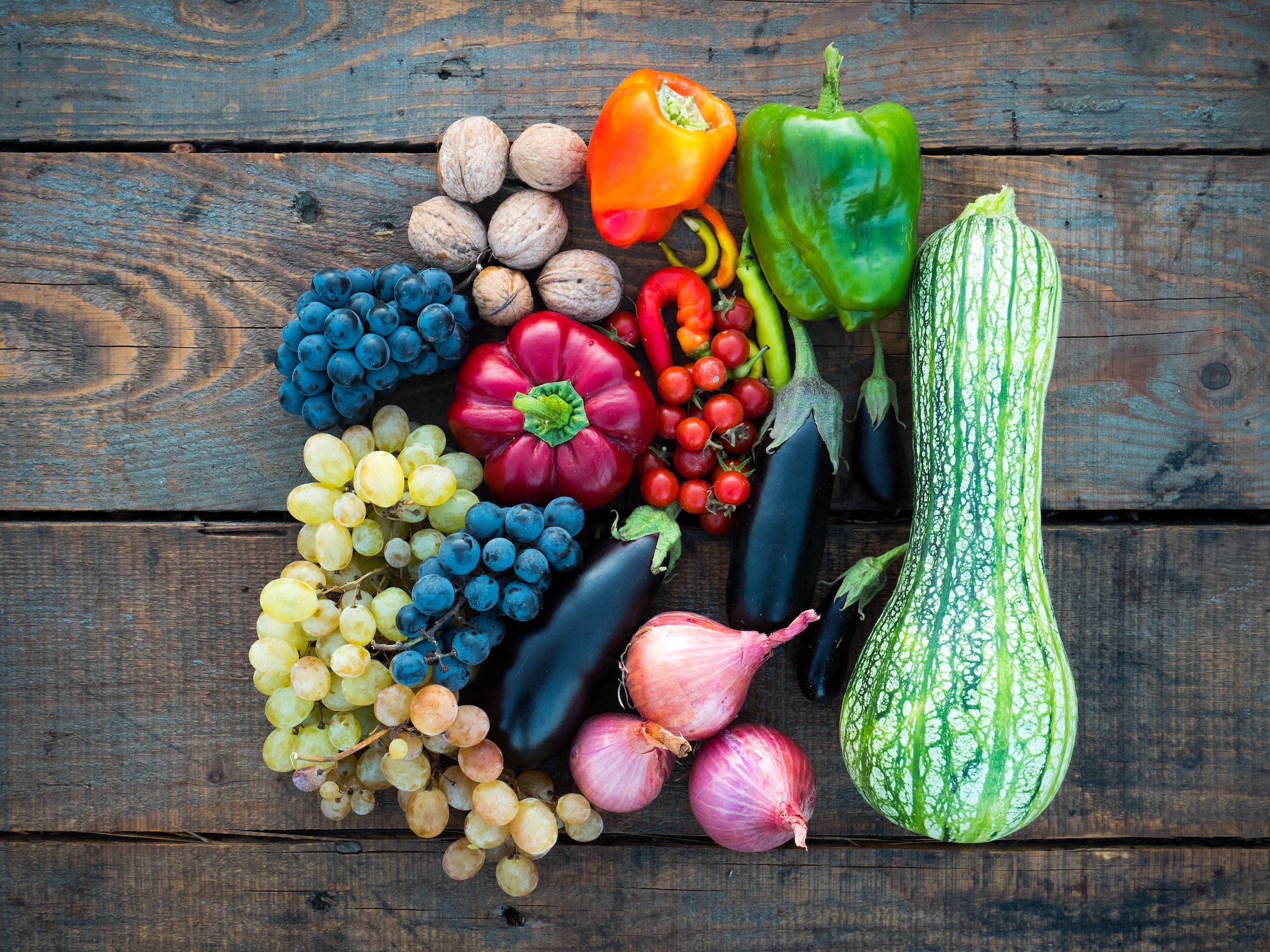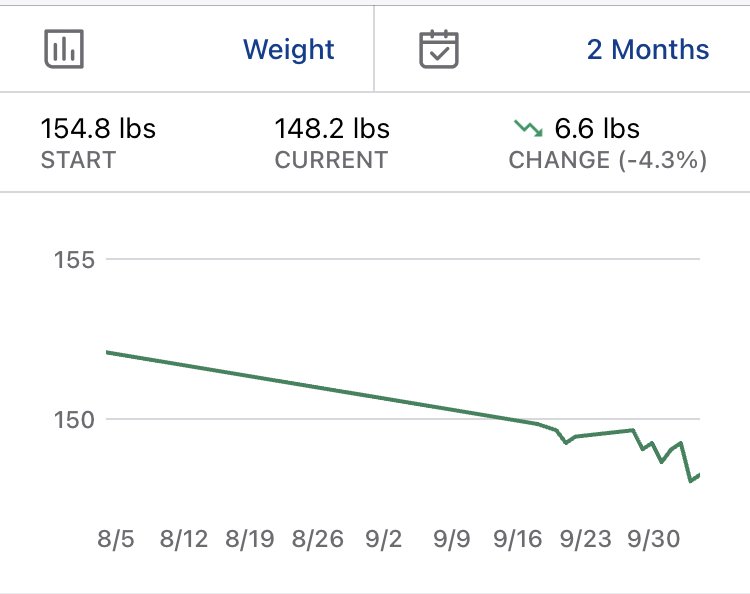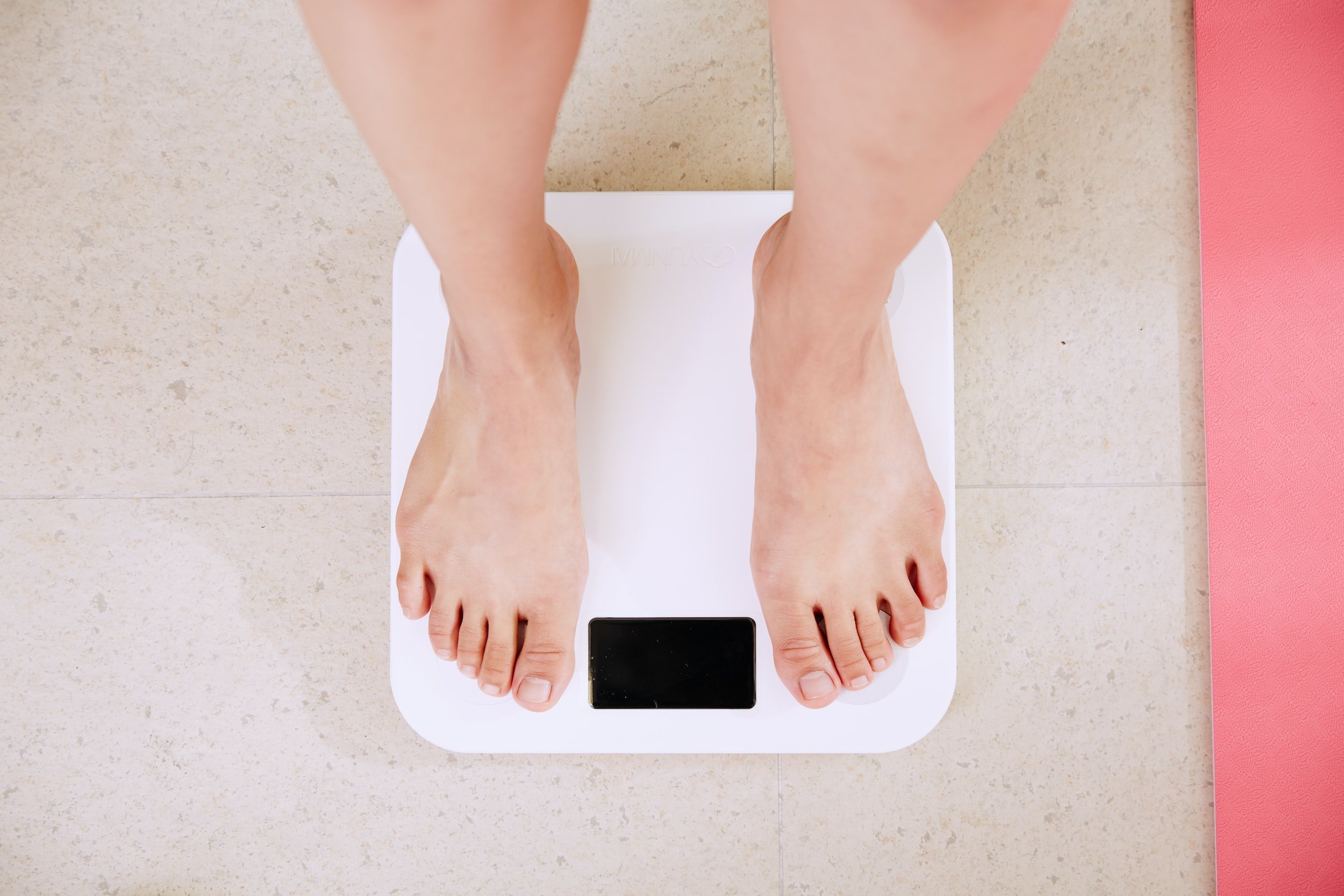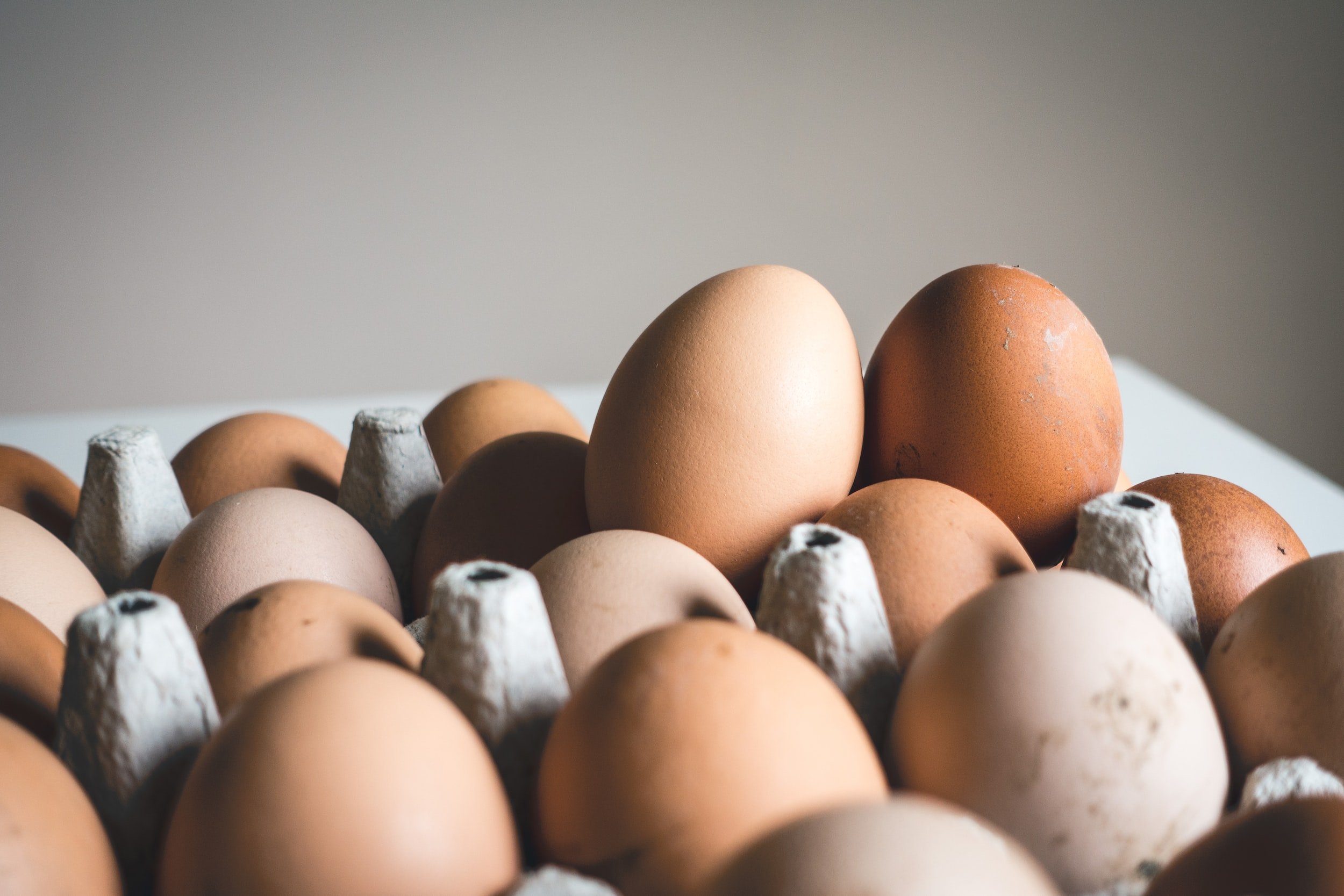Best Foods for PCOS. My Whole30 Journey
Ugh, another “diet”? I think of this one as more of a lifestyle change, again you’re thinking, not another one.
The decision to do Whole30 wasn't an easy one. I've been struggling with my weight loss for nearly 2 years after going off the pill. I'd tried so much (low carb diet worked but I found it was too restrictive), and was really feeling like I was getting absolutely nowhere, or far too slowly.
That's why in August 2022, I decided (along with my boyfriend) to do Whole30. We were both feeling a little like we needed to improve our diet, get a back on track and figure out how to live a little bit more balanced than we had.
Between lots of travel to Cape Cod and Iceland and friends visiting New York City, we'd really gotten off our health kick.
There have been such huge emotional benefits to feeling like my body is responding to the whole30 diet and given all the other restrictive diets I've tried (pretty much everything except the keto diet), I've been so much happier.
Cooking my own meals was challenging at first, but then you figure out what your favorite foods are, come up with an eating plan, and find ways to stay on the whole30 diet while eating out once and a while.
This is my explanation of the first 2 weeks of me doing the Whole30 diet. It takes the full time and re-entry to figure out and identify problem foods. I'll do another post to discuss!
Disclaimer
I am not a trained medical professional, and this was a scientific experiment I did to improve my own health. If you have a history of disordered eating, or an emotional relationship to food, you should seek out the help of medical doctors or nutritional professionals.
I treated this experience as a nutritional reset, allowing me to eat real foods, limit my added sugar intake and eliminate the restrictive nature of how I had been living my life. This has been food freedom for me. To eat how nutrient rich foods, whole foods, and to eat to satiety.
But, we are all different, so know yourself, your limits and remember this is only my experience, and should not be taken as medical advice.
My Weight Loss History
With PCOS, or even any other disease like diabetes, it’s so hard to keep adjusting your life. I feel like it’s two steps forward and one step back with figuring out my body since I put on this weight. I knew what worked for me after my time in March-April 2022 with a nutritionist, but I’d really let my diet slip.
I am a bit of a perfectionist (not healthy let's be real here), and am still trying to find ways to get back to my healthy and smaller body. Yes, saying I want to be smaller is controversial and I'm all about body positivity. There’s a whole host of things about being happy at every size and accepting your body for how it is, but I’m going to be honest with you, that’s not the enlightenment I’ve reached and I’m still trying to heal my body.
I actually gained my 20 pounds in a matter of weeks, 2-3 weeks to be honest after going of birth control.
That kind of weight gain is not normal.
Along with the weight gain, I knew I needed to improve my gut health. I don't have particularly bad eating habits, but I assumed that certain foods were probably not helping with inflammation. Look, I don't go for the french fries too much, but I know I consume a lot of added sugar. It's really in everything.
I knew I needed to make some changes and in the graphic below, you can see how the progress has been the past 2 months.
But let me tell you, it has been a JOURNEY to figure out how to get from 165 pounds to fit into the clothes that I wore pre-pandemic basically. Now I know I'm not alone in having gained a few extra "LBs" during COVID, but that doesn't mean it was a place I felt comfortable in.
This is my Whole30 timeline graphic so far. I’ve been using MyFitnessPal to keep track of my progress (albeit sporadically) for the past year and a half.
Why I tried the Whole30 Program
I’d really tried every diet to try to get my PCOS under control. I went to an endocrinologist who was telling me metformin might be the right next step, and frankly, I didn’t want to go that route.
As a last-ditch effort, I decided to try to do Whole30 for the last 2 weeks of August and the first two weeks of September and see how it went. Were there any positive changes? Is this the basis of a sustainable solution for my PCOS woes?
If you’ve read about my time with a nutritionist, then you know a lot of the Whole30 rules I have generally tried to follow.
Mainly I wanted to know “does gluten and dairy-free help PCOS”?
Granted, between a trip to Iceland, general summer fun, and the fact that sometimes you just need ice cream, I’d really fallen off the wagon. But as we gear up for the fall and even think about wanting to potentially have a baby in a few years, I think it’s time to start getting back to figuring out how to heal my body naturally and without the metformin.
Part of this healing in my mind is seeing how the symptoms of PCOS are reacting to my lifestyle. The easiest one for me is to examine weight. I started 2021 (after going off my hormonal birth control) at 159 pounds (which was still about 15 pounds heavier than my body on the pill). My weight shot right up to 165.
Now just for context 165 pounds is about 20 pounds heavier than I had been prior to the pandemic (ugh the pandemic weight) and after going off the pill. Let me tell you 20 pounds makes a huge difference.
None of my clothes fit, and there’s really nothing more upsetting than having to buy all new clothes that fit you a few weeks prior. My weight changed in a matter of weeks. Not months, not years. Weeks. In January 2021 after I stopped taking birth control my weight changed literally overnight. Since then, I’ve been trying to figure out how to get back to equilibrium.
This is my Whole30 timeline graphic. I’ve been using MyFitnessPal to keep track of my progress (albeit sporadically) for the past year and a half.
Lose Weight: My timeline:
I’ve been using MyFitnessPal on and off for nearly 2 years so I can actually share how my weight loss trajectory has been. I have taken months off from tracking my intake and weight, but in times where I’ve felt most distressed about my weight (and it’s been a lot the past almost 2 years) I’ve consistently logged it. Which is great to be able to share with you! So here it is, the weight trajectory since January 2021.
September 2021:
I weighted in 1t 164.8. I have no other data prior to September. I knew something was wrong and had only started to find a doctor who would listen to me. I’ve talked about it before, but it is so challenging to find someone who will listen to you. My doctors initially told me to do more cardio and be less stressed (newsflash those were not the root causes). I was doing medical tests until October trying to figure out where all these horrible symptoms came from . I basically gave up on trying to understand or change my diet and was only focusing on trying to make peace with my new body. My clothes no longer fit and man I was upset. So no data for October, which I would consider a “survival” month.
November 2021:
I finally figured out what was going on (turns out it’s PCOS!) and attempted a lower carb diet of 70-80 carbs per day. Result? Limited and slow weight loss, but I got down to 160.4 pounds the last day of November. So about 5 pounds, which felt great. Weight is a moving target which is important to remember, so just remember everyday fluctuates some and that is totally normal!
December 2021:
I mean it’s December and I just couldn’t keep up with the low carb situation, so I basically maintained my weight through the entire month.
January 2022:
I went into the month feeling re-energized about tackling my health issues. I decided to do dry January and with the direction of my doctor, change my carb limit to 60. It was a tough haul, but with the help of a very strict diet and careful workouts I dropped about 3 pounds in January. Now I know it doesn’t seem like a lot, but after being nearly 165, dropping down to 157 felt like a very small miracle. No, my clothes still weren’t fitting, but the direction was the right one.
February-March 2022:
I couldn’t break the plateau of 157-159. I was stuck, and nothing I did seemed to make a difference. I found that if I ate a 1500 calorie and 50 carb diet I could temporarily keep my weight down, but then it would come back up if I even had a night off. So that’s when I called in the help of a nutritionist.
March 2022:
With the help of my nutritionist, I dropped down to 154 in a week! Yes, crazy right? I’ve talked about the diet, but it took a little experimenting so it wasn’t actually the first week I saw her, it was probably about week 3. The rules were, no dairy, no gluten, 2 servings of fruit a day, and only one serving of nuts (my weakness), and only clear alcohol (tequila basically). It felt like a huge, HUGE success. Does gluten and dairy free help pcos? Yes, I found that it has been instrumental in losing some of the weight.
April-August 2022:
I tried to maintain all my health tips from the nutritionist, but I brought back dairy and gluten, it was just too hard not to. But then my weight plateaued to around 153-155. I had all but given up, and realistically life is too short to only eat 1500 calories and 50 carbs every day. But, my weight didn’t go back up. This is critical, once the weight was lost, it stayed off.
August 2022:
I decided to try Whole30, just to see. I had no idea of what it would be like, if there would be any weight loss and if I would think it was worth it for my PCOS. There’s very little information on the internet about how it affects PCOS symptoms. Part of the reason I’m trying to share it now! I’m 2 weeks in, and today I hit my lowest weight since 2020 weight in 150.6. Can you believe it? So let me share a bit more about Whole30 and some of my non weight wins.
But first,
General Whole30 Questions
When do you start losing weight on whole30?
Honestly, I know Whole30 you’re not supposed to weigh yourself. But, I couldn’t help myself. This has been a nearly 2 year journey and I wanted to make sure I wasn’t reversing all the success that had taken me a year and a half to achieve. My eating habits have improved a lot, and my body is showing me that the health benefits are clear.
As a caveat I did get my period the first week, so some of the bloating made tracking a bit tricky, but by day 4 (ish) my weight was coming down. I’m now 2 weeks in and am down about 3-4 pounds.
Processed Foods
Processed foods are everywhere. Truly. You could listen to all those people who say, "any kind of food that's changed is processed". Like how a nut butter is "processed". But what Whole30 here means, is trying to remove preservatives, and general junk from your diet. So you can have almond butter, but you're trying to stay away from cookies.
A good shopping tip is when. you go to the grocery store, staying around the periphery of the store. Many of the items you should limit are in the center (cookies, crackers, sugar). Outside you'll get fresh chicken, fish, meats, fruits, vegetables, and dairy.
Of course you'll do Whole30 as an elimination diet to figure out what makes the most sense for you from a reaction and inflammatory standpoint.
But, just because you're not allergic to oreos, doesn't mean that should be a staple again for your diet. We can heal our bodies through food, and Whole30 is mean to teach us just that.
Whole 30 guidelines:
eggs and egg white have been a staple for me through Whole30
So first of all, you’re not supposed to weigh yourself (but if you’ve read this far, you know I kind of ditched this one). Other than that, this is simply an elimination diet, so removing foods that might end up causing inflammation and distress.
That means saying bye bye to dairy, gluten (also grains and most starches, so no corn, no quinoa, no oats, and no gluten), soy, sugars/artificial sweeteners, alcohol, legumes (no beans, and sadly no peanut butter)and processed oils. You’re also not supposed to recreate your favorite sweet dishes with say a whole30 dessert. You shouldn’t make “compliant” desserts because you’re trying to retrain your brain. I’ve found dried fruit is a huge complement to this experience. So gluten free and PCOS? Try it!
This is not meant to be a vegan diet. I actually think that would be really tough to get the protein required. It's also important to note that women with pcos may have a harder time with vegan diets and it's generally recommended that they eat meat, eggs, and animal products.
What CAN I eat on Whole30?
Whole30 is not meant to be a weight loss diet. I'll say that.
It's about creating healthy habits, eating minimally processed food, and healing your health. For me this meant sensitizing myself (and my taste buds) to sugar, figuring out my digestive issues, and generally healing my PCOS chronic health issues.
Whole30 breakfast:
My go to for the past 2 weeks has been, eggs, filling up my plate with a salad and then a piece of fruit to finish it off. As you know, I’ve cut out caffeine, so I don’t include coffee in the mix. Sweets are so easy to go to in the mornings, but they’re problematic for blood sugar. Stick with savory my friends!
You can’t have grains but you can have potatoes on Whole30!
Working out:
I was concerned that working out on Whole30 was potentially going to be a struggle. I have started to get 10,000 steps a day (it makes me feel so much better to get outside time) and have been lifting my usual 1-3 times a week. I haven’t felt exhausted, and have been able to keep up my energy levels. I haven’t felt wildly more energized, but I do feel better.
Non-weight wins:
There are a few here that are important to note. My skin has been really clear, even my facialist noticed and that hasn’t taken more than a few weeks. I had a rough week or two in late July/early August where I was getting a new breakout basically every day. This diet has really calmed it.
I have keratosis pilaris on my arms. It’s that annoying bumpy “strawberry skin” or “chicken skin” (can’t they think of better names). I’ve noticed, two weeks in that my arms are remarkably smoother. No, it’s not gone, but it is much improved. Another thing is my digestion. Like so many with PCOS is finicky at best. Whole 30 has been revelatory. Now it’s not completely better, but it is extremely improved and that is something to write home about.
Whole 30 bad side effects:
This is important to note. When I started Whole30 I had cut caffeine and sugar in a dramatic and what felt like a very violent fashion in 2021. So the brain fog, and illness that accompanies some of the dietary changes I had already gone through. Be prepared for that sugar withdrawal.
IT IS REAL.
I’ve done it a handful of times before I got pretty strict about sugar intake and here’s the usual pattern I find. Day one is ok until late afternoon, when a headache and brain fog develops. Day 2, just miserable, the brain fog is acute. Day 3 morning is same as day 2, but by late afternoon the brain fog begins to lift and Day 4 you feel back to normal again.
Whole30 Swaps
I think figuring out ways to modify your favorite dishes while you eliminate foods is critical. Some foods like pasta, and chickpea pasta may be off limits, but it's easy to replace with some delicious and filling zucchini noodles for example.
For french fries, we use roasted vegetables (think carrots and sweet potatoes) doused in a healthy level of olive oil and Trader Joes Everything but the Bagel seasoning. Seriously, you have got to try it.
Instead of regular butter, you can use Ghee, or clarified butter, which is a lifesaver.
Whole30 and PCOS:
I’ve read all these mixed things and seen these Google like “is Whole30 bad for you”, “whole30 bad side effects”, “whole30 does it work”. People say, it’s dangerous, or it’s not the best way to do an elimination diet. And honestly I think there is an argument for doing an elimination diet for longer than 30 days.
But at the end of the day, if you have PCOS like me and are at your wits end about how to lose weight. Give this a try. I’m waiting to see if helps with some of my other symptoms (mainly hair loss), but I’d be lying if I didn’t say this is the best I’ve felt since I went off the pill in January 2021. I know that I deal with inflammation.
Hives have been a problem for me forever, my family has auto-immune diseases, and I think that’s probably the crux of it. I also have been learning about how blood sugar regulation has a direct impact on on inflammation. I’ll share more about that, but I ended up getting a continuous glucose monitor to see how my glucose levels did during whole30 and how they’ll do after the reintroduction of the “restricted” food items. Stay tuned!
I’ll make sure to report back in a few weeks at the end of the Whole30 experience to let you know how it went, how much weight I lost, how re-entry went and which of these lifestyle and diet changes I’m going to maintain going forward.
If you want to know how to go gluten and dairy free with PCOS, I can easily share my recipes and meal plans that have been instrumental. Let me know your thoughts in the comments!
You can’t have grains but you can have potatoes on Whole30!









